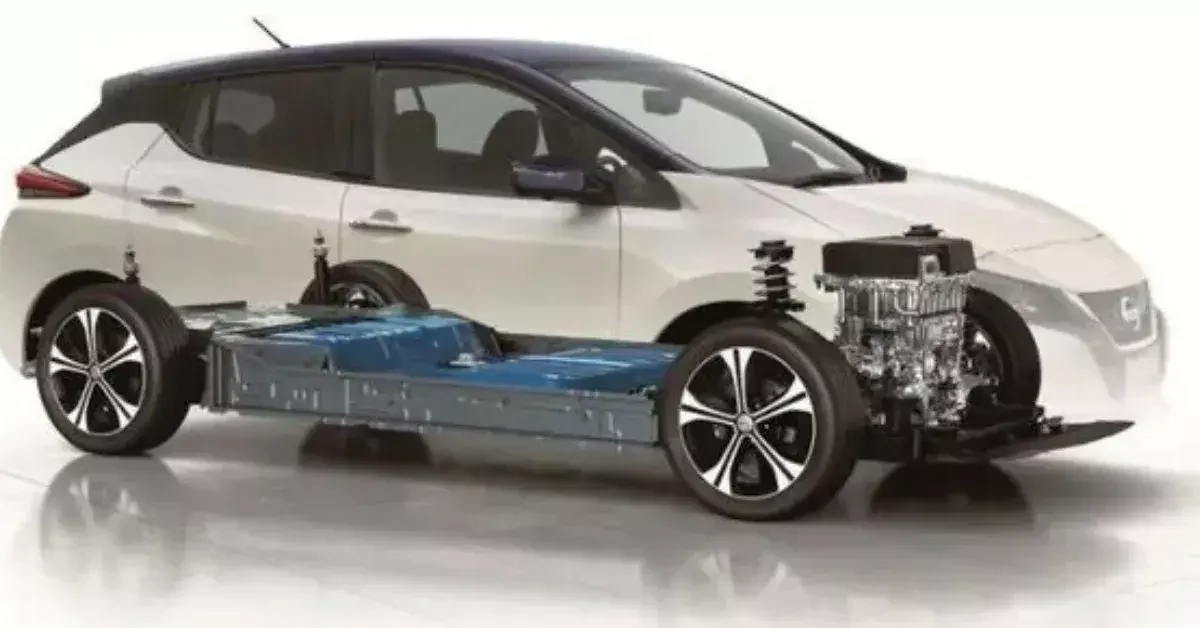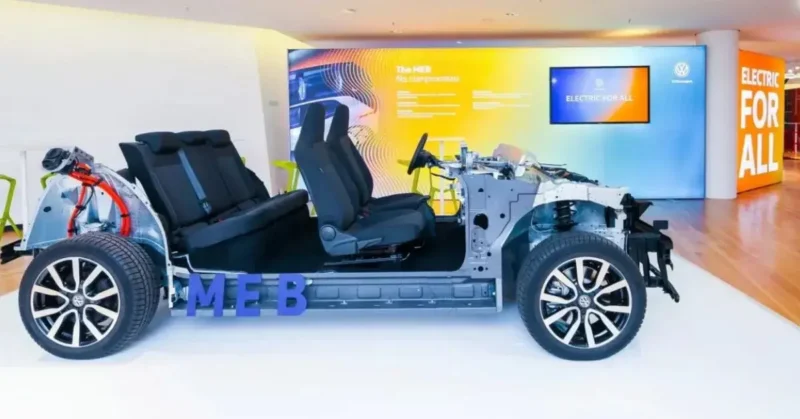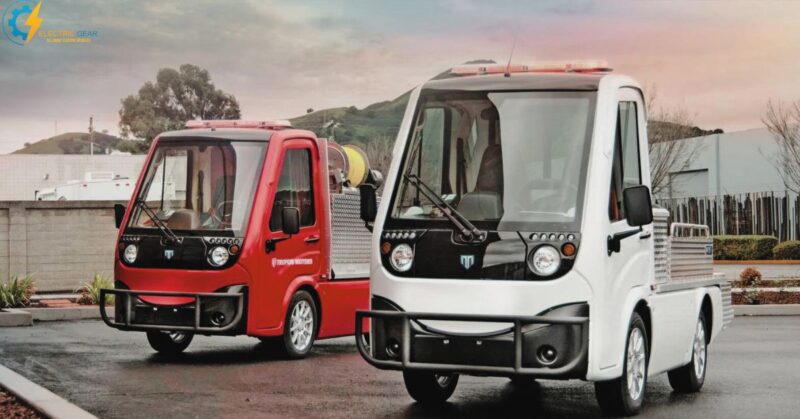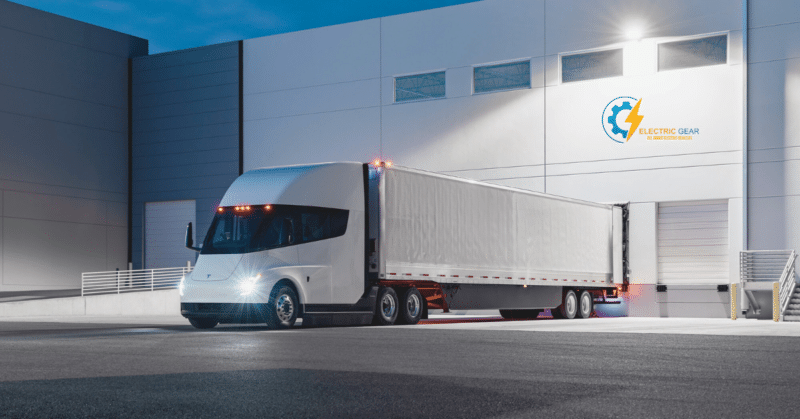Recent years have seen an enormous increase in the popularity of electric cars because of their affordability and environmental friendliness. The battery of an EV, which stores the electrical energy used to drive the motor, is one of the most crucial parts of the vehicle. Yet, the weight of the batteries in electric vehicles has long been a source of discussion. Read this article to know impact of electric car battery weight on vehicle safety.
This article will thoroughly review EV batteries’ weight, how it affect EVs, and how manufacturers resolve the problem. An electric car battery weighs more than a gas-powered vehicle. Find out why! If you recently bought an electric vehicle and are eager to know its battery weight, keep reading this article.
Here, you’ll find the information related to the EV’s battery weight.
Recent years have seen an enormous increase in the popularity of electric cars because of their affordability and environmental friendliness. The battery of an EV, which stores the electrical energy used to drive the motor, is one of the most crucial parts of the vehicle. Yet, the weight of the batteries in electric vehicles has long been a source of discussion.
This article will thoroughly review EV batteries weight, how it affect EVs, and how manufacturers resolve the problem. An electric car battery weighs more than a gas-powered vehicle. Find out why! If you recently bought an electric vehicle and are eager to know its battery weight, keep reading this article.
Here, you’ll find the information related to the EV’s battery weight.
How Much Does an Electric Car Battery Weight?

Electric vehicles are heavy due to the heaviness of their batteries.
The weight of an electric vehicle battery is almost 1000 pounds(450kg). Some EV batteries weigh 2000 pounds. It can be less or more.
The battery in an electric car is heavier than that of conventional vehicles. Few manufacturers say if an electric car’s battery has more weight, it benefits the users because the battery will be more powerful if it has more weight.
The massive battery makes the electric vehicle heavier. The heavier car requires more energy to run. The more kWh battery will have, the heavier it is. In the market, some top EVs have 100 kWh batteries.
The capacity and manufacturing technique of an electric car battery determines its weight. The lithium-ion battery, which generally weighs between 200 and 600 kg, is the most popular EV battery. Nevertheless, the weight might change based on the size and range of the vehicle.
Factors On Which Electric Car Battery Weight Depends
The weight of electric vehicle batteries depends on various factors. Some of these are listed below:
-
- Battery capacity: The higher the battery capacity, the more energy it can store, but also, the heavier it will be.
-
- Battery chemistry: Different types of battery chemistries have different energy densities, which can affect the weight of the battery.
-
- Battery size and shape: The physical size and shape of the battery can affect its weight and the weight distribution of the car.
-
- Thermal management system: Electric car batteries generate heat during use and require a thermal management system to keep them cool from overheating. This system can add weight to the battery.
-
- Packaging materials: The materials used to pack and protect the battery can also contribute to its weight.
-
- Manufacturing process: The battery manufacturing process can also impact its weight.
Generally, the weight of an electric vehicle’s battery is an essential consideration for car manufacturers, as it can affect the car’s range, performance, and handling.
What Makes EV Battery Heavier
Batteries for electric vehicles (EVs) are typically heavier than those for conventional gasoline or diesel engine vehicles for several reasons:
-
- Energy density: Since gasoline and diesel fuel have higher energy densities than contemporary batteries, more battery cells are needed to store the same energy. The battery pack becomes heavier as a result.
-
- Battery chemistry: Lithium-ion batteries are daily and can be found in mobile phones and laptops. They have become the standard for electric car batteries due to their higher energy density and long cycle life.
-
- Lithium-ion cells: Batteries made of Lithium-ion have a higher energy density than other battery chemistries but can also be heavier and are frequently used to make EV batteries. However, the material is heavy. Every cubic foot of lithium weighs almost 333 pounds(151.2kg).
-
- Battery size: The range of the EV is closely correlated with the size of the battery pack. Longer ranges necessitate larger battery packs, which add weight.
-
- Safety aspects: EV batteries need extra safety measures, like cooling and fire prevention systems, which increase the weight of the battery pack.
-
- Supporting structures: The battery pack is a crucial component of the EV’s framework and must be built to withstand collisions and impacts. The battery pack has to carry more weight due to the additional structural support needed.
The vehicle’s range, performance, and handling are all impacted by the weight of the EV battery, which is a crucial factor for automakers to consider. The weight of EV batteries is anticipated to decrease over time as battery technology advances.
Reasons for EV Batteries Heaviness
There are some reasons why EV battery is heavy. Some of them are listed below:
-
- There is metallic armor around the battery, which keeps it safe and increases weight.
-
- Electric vehicles need heavy batteries because their mileage depends on battery efficiency. The more weight the battery has, the more powerful it is. The more powerful means it would last for a more extended period.
Because of considerations such as battery chemistry, energy density, battery size, and safety measures, electric vehicle (EV) batteries are often heavier than conventional gasoline or diesel engines.
Current battery technology has a lower energy density than gasoline or diesel fuel, requiring more battery cells to store the same energy. Also, bigger battery packs are required for greater ranges, which increases weight. Lastly, EV batteries need extra safety measures like cooling and fire prevention systems, which increase the total weight of the battery pack.
Impact of Battery Weight on EVs
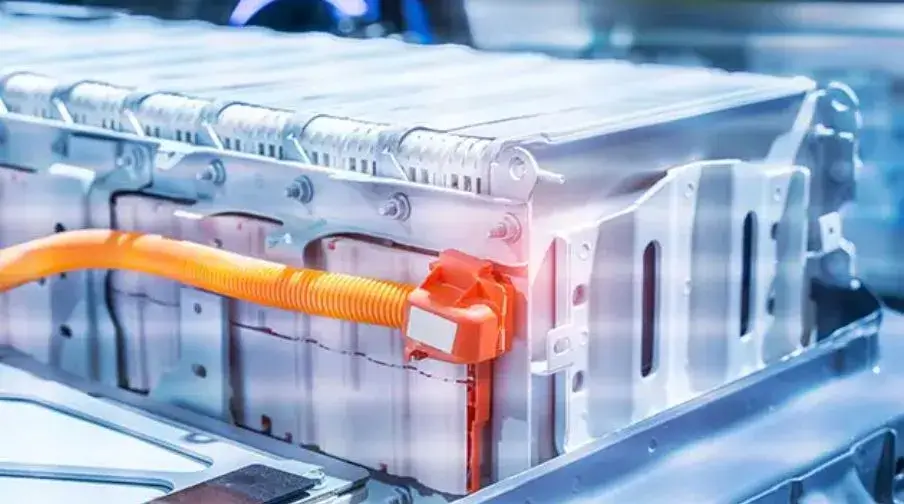
The efficiency of EVs is drastically affected by their batteries’ weight. The heavier the battery, the shorter the driving distance will be. This is because carrying greater mass requires more power from the battery. Also, the battery’s weight affects the vehicle’s acceleration and handling.
But, the battery’s heft is not without its benefits. The added mass of the battery may make the vehicle less susceptible to the effects of the wind and other environmental factors.
Some EVs and Their Batteries Weight
| Electric Vehicle Model | Battery Pack Weight |
|---|---|
| Tesla Model S Long Range | 1,200 pounds (544 kg) |
| Chevrolet Bolt EV | 960 pounds (435 kg) |
| Nissan Leaf | 600 pounds (272 kg) |
| Audi e-tron | 1,540 pounds (699 kg) |
| Porsche Taycan | 1,389 pounds (630 kg) |
| Ford Mustang Mach-E | 1,000-1,400 pounds (454-635 kg) |
| Hyundai Kona Electric | 1,049 pounds (476 kg) |
| Kia Niro EV | 1,000-1,200 pounds (454-544 kg) |
| Rivian R1T | 1,750-2,100 pounds (794-953 kg) |
| Lucid Air | 1,300-1,500 pounds (590-680 kg) |
Please note that these weights may vary depending on the battery size and other factors.
Some Tesla EV batteries Weight
Tesla electric vehicle batteries vary in weight based on the model and battery capacity. The estimated weights of Tesla electric vehicle batteries are as follows:
-
- Tesla Model S Extended Range: The 100 kWh Model S battery pack weighs around 1200 pounds (544 kg).
-
- Tesla Model S Performance: The 100 kWh battery pack weighs roughly 1,200 pounds (544 kg).
-
- Tesla Model X Long Range: The 100 kWh Model X battery pack weighs around 1400 pounds (635 kg).
-
- Tesla Model X Performance: The 100 kWh battery pack weighs roughly 1,400 pounds (635 kg).
-
- Tesla Model 3 Long Range: The 75-kWh battery pack weighs around 1,060 pounds (481 kg).
-
- Tesla Model 3 Performance: The 75 kWh battery pack weighs roughly 1,060 pounds (481 kg).
-
- Tesla Model Y Long Range: The 75-kWh battery pack weighs around 1,060 pounds (481 kg).
-
- Tesla Model Y Performance: The 75 kWh battery pack weighs roughly 1,060 pounds in the Tesla Model Y (481 kg).
Please remember that these weights are estimates and may vary somewhat based on the vehicle’s unique setup and choices.
At this article’s beginning, it was also stated that an EV battery’s average weight is approximately 1000 pounds. It’s the same for the Tesla batteries.
Which EV Has the Heaviest Battery?

GMC Hummer EV Pickup Edition 1 has the largest battery capacity of 212 kWh. The second largest battery capacity is GMC Hummer EV Pickup EV2x of 212 kWh, and the third largest battery capacity is GMC Hummer EV Pickup EV3x of 212 kWh.
Some EVs with big and hefty battery packs include the Tesla Model S Plaid, which has a 100 kWh battery pack that weighs about 1,200 pounds (544 kg), and the Audi e-tron, which has a 95 kWh battery pack that weighs about 1,540 pounds (699 kg).
The Mercedes-Benz EQS, on the other hand, presently features the biggest and heaviest battery pack of any production EV on the market.
Benefits of Heavy-Weight EV Battery
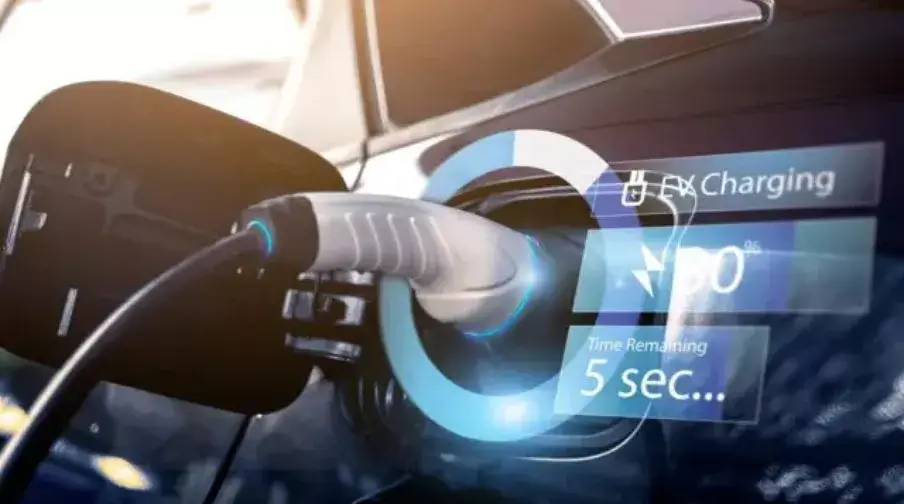
Although a larger electric vehicle (EV) battery may seem to be a drawback, it may potentially have various advantages:
-
- Increased range: A bigger battery pack can store more energy, allowing for greater driving ranges between charges.
-
- Increased power: A larger battery pack may provide more power to the electric motor, resulting in quicker acceleration and overall performance.
-
- Improved weight distribution: The weight of the battery pack may be utilized to enhance the vehicle’s weight distribution, resulting in improved handling and stability.
-
- Increased safety: In the case of an accident, a larger battery pack may offer additional protection, lowering the chance of damage to the vehicle’s passengers.
-
- Increased resale value: Buyers are frequently ready to pay more for EVs with longer driving ranges. Therefore, electric cars with bigger battery packs may have better resale values.
Overall, a bigger EV battery may bring various advantages, including extended range, superior performance, better handling, more safety, and higher resale value.
How are Manufacturers Addressing the Issue of Battery Weight?
Electric vehicle (EV) battery weight is a problem that manufacturers are continually working on. Increasing the capacity of individual battery cells is one strategy. The battery may be lighter as more energy can be stored in the same volume.
The usage of lightweight materials for the battery case is another option. Several companies, for instance, are replacing steel with aluminum to lighten the battery housing.
Manufacturers are also looking at solid-state batteries, which have the potential to provide better energy density than lithium-ion batteries while still being lower in weight.
Final Thought
The weight of the electric vehicle battery significantly impacts the performance of EVs. While a bigger battery will shorten the vehicle’s range, it can also increase stability and resistance to outside influences.
By increasing the energy density of the battery cells, using lightweight materials in the battery casing, and investigating alternative battery technologies, manufacturers are continuously attempting to solve the problem of battery weight. We may anticipate lighter and more effective batteries in the future as technology develops, which will increase customer interest in EVs.

Imran is an experienced content writer who crafts engaging and informative articles for a variety of industries. With a keen eye for detail and a passion for storytelling, Imran delivers high-quality content that resonates with readers. Whether he’s writing blog posts, social media content, or website copy, Imran is committed to delivering compelling content that drives results.

